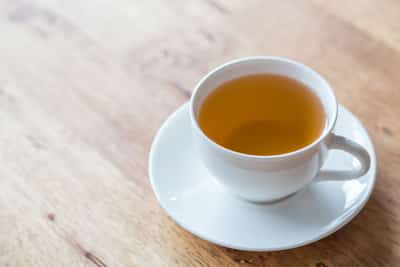
I certainly believe black tea can have an antibacterial effect. My wife and I have young children and we found the best thing for their weeping eyes when they were babies was, amazingly enough, a solution of lukewarm black tea.
These same properties in tea have also been found to be beneficial for dental health. A report in London’s Daily Mail newspaper in July 2013 revealed scientific findings* that the antioxidants in black tea can help combat two types of bacteria associated with dental decay and gum disease: Streptococcus mutans and Lactobacillus.
The report also stated that green tea appears to have a similar antibacterial effect, as well as helping to prevent bad breath by neutralising the sulphur compounds that contribute to it.
Further, both black and green teas appear to reduce inflammation in the mouth and prevent the adhesion and growth of bacteria that start a chain reaction in the mouth.** When the bacteria reacts to the carbohydrates in food, it produces acid that dissolves tooth enamel, resulting in damage that leads to fillings or tooth loss.
In summary, drinking three to four cups of tea a day can help keep the dentist away by reducing dental decay and gum disease!
A few words of caution though. Many people have their tea with sugar, and the effects of regular exposure to sweetened tea will far outweigh any antibacterial and anti-inflammatory positives. Also, the tannins (or tannic acids) in copious amounts of tea will stain your teeth, an outcome that can only be reversed by professional cleaning and possibly professional teeth whitening.
Do enjoy your tea, but remember that for good oral hygiene nothing replaces old-fashioned tooth brushing, thorough flossing and regular professional cleans at the dentist.
* By Dr Carrie Ruxton, published in the British Nutrition Foundation’s Nutrition Bulletin.
** According to Dr Tim Bond, spokesman for the UK’s industry-backed Tea Advisory Panel.

